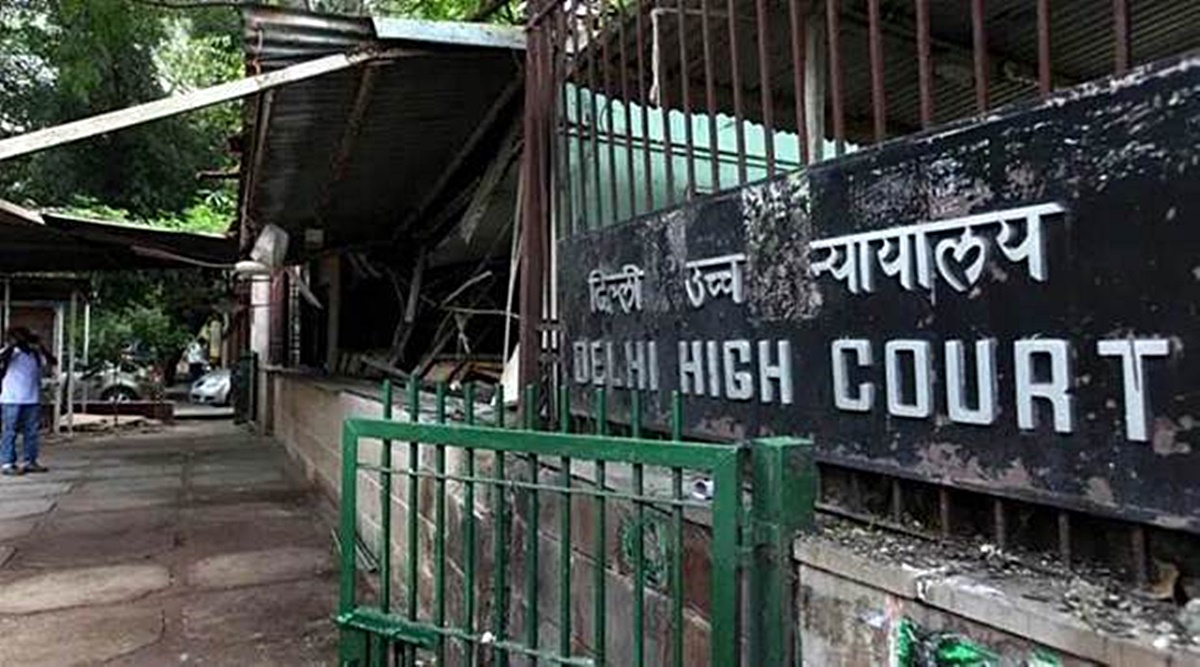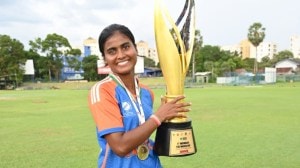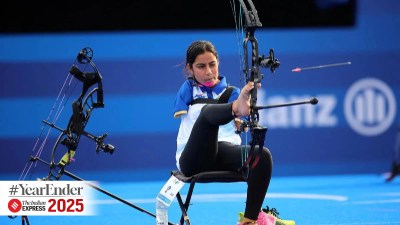Stay updated with the latest - Click here to follow us on Instagram
Mechanical, cut-paste orders by assistant controller of patents should be discouraged: Delhi HC
The petitioner, Blackberry Limited, had filed a patent application for the invention “Text Selection Using a Touch Sensitive Screen of a Handheld Mobile Communication Device” in September 2008. The assistant controller of patents in a June 2020 order refused the plea.
 The high court quashed and set aside the order passed by the Assistant Controller of Patents and Designs and remanded back the matter for “reconsideration”. (File)
The high court quashed and set aside the order passed by the Assistant Controller of Patents and Designs and remanded back the matter for “reconsideration”. (File) The Delhi High Court recently pulled up the Assistant Controller of Patents and Designs for rejecting Blackberry Limited’s invention application. The court observed that “mechanical, cut-paste orders” should be discouraged.
A single-judge bench of Justice Sanjeev Narula in its March 22 order observed, “The impugned order fails to satisfy the basic requirements of any order adjudicating on patentability of an invention. It is for this arbitrary approach of the Assistant Controller that the Court is not in a position to examine the impugned order on merits.”
The petitioner, Blackberry Limited, had filed a patent application for the invention “Text Selection Using a Touch Sensitive Screen of a Handheld Mobile Communication Device” on September 16, 2008. The Assistant Controller of Patents and Designs in its June 23, 2020, order refused the company’s application.
“Reasoning through a speaking order is a vital aspect of the principles of natural justice and is of utmost importance, which needs to be underscored. If the patent office’s orders lack proper reasoning, it may be difficult for the applicant to identify the grounds for appeal. Not only does this benefit the applicant, whose rights are likely to be affected, but also assists the Court in ascertaining how the concerned officer applied their minds and reached the impugned conclusion, while exercising judicial review,” Justice Narula remarked.
The high court noted that the entire text of the assistant controller’s order was dedicated to noting only details of the invention, however, the crux of the issue is the lack of reasoning supporting the final decision, “a task at which the Assistant Controller has completely fallen short”.
This makes the decision “arbitrary, suggesting a subjective determination without any objective criteria”, the high court said adding that such kind of “mechanical, template and cut-and-paste orders” cannot be sustained and should be “stridently discouraged”.
The high court quashed and set aside the order passed by the Assistant Controller of Patents and Designs and remanded back the matter for “reconsideration”. The Court further directed that Blackberry will be granted a hearing and its patent application for the said invention will not be decided by the officer who had passed the order which was challenged.
“Above exercise be completed and a fresh order be passed within a period of three months from the date of release of this order. Needless to say, de novo consideration would proceed independently, uninfluenced by the impugned order,” Justice Narula directed.
Blackberry’s invention is a method for facilitating character/text selection by a user on the touch screen of a handheld device where displayed characters available for selection are small enough that the user’s contact with the screen is capable of overlapping a plurality of simultaneously displayed characters. The invention intends to provide accurate control for the selection of text/icons displayed on the touch screen.
Perusing the assistant controller’s order, the Court noted that the reasons given for dismissal “are merely a word-for-word replication of their own claims” and no reasoning was discernible from the same.
The high court observed that simply remarking that the subject invention is not patentable being a mathematical or business method, a computer programme per se, or an algorithm is “not sufficient” and the assistant controller “ought to have disclosed reasons to support his conclusion”.
Justice Narula referred to another decision of the high court in ‘Dolby International AB v. The Assistant Controller of Patents and Designs’ wherein a coordinate bench had considered an “unreasoned order of the Controller” and had observed that officers concerned of the Controller of Patents and Designs office must bear in mind that the question of grant and rejection of a patent is a serious matter.
Justice Narula said that it must be ensured that Patent Controller’s officers practice due application of mind while rendering decisions. “Well-articulated reasons in such orders would demonstrate that the decision has been made with proper consideration and allows for more effective judicial review, if necessary,” the high court remarked.







